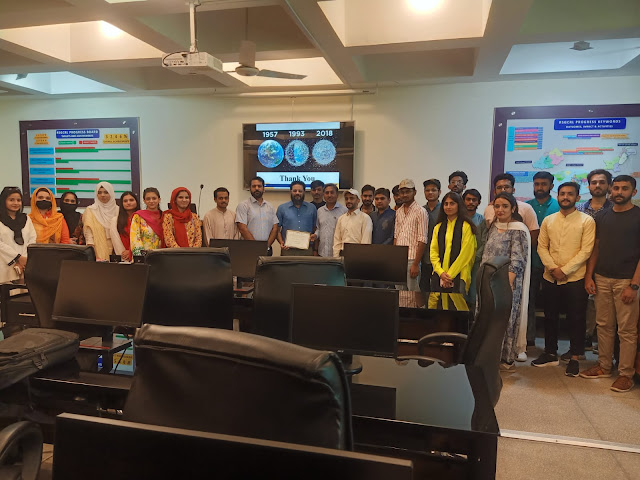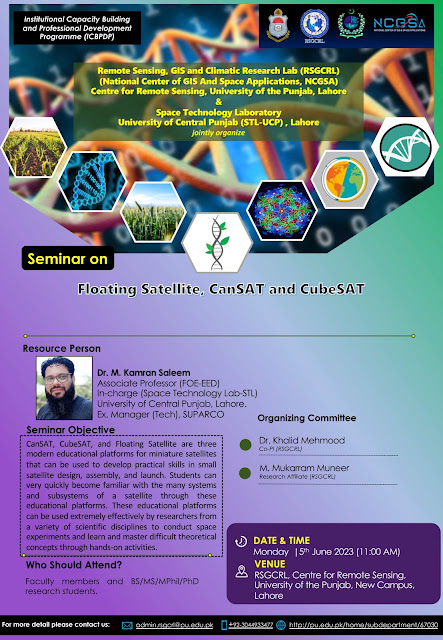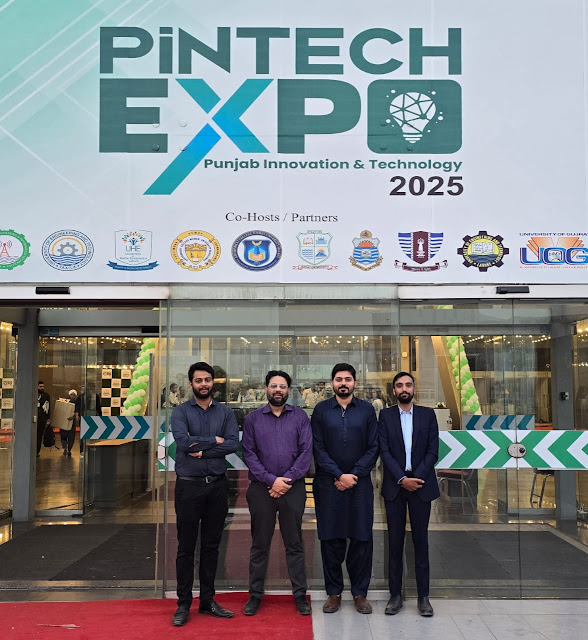Unlocking the Cosmos: Seminar on FloatSAT, CanSAT, and CubeSAT at Punjab University
In Lahore, Pakistan, a seminar recently took
place that illuminated the possibilities of space education and satellite
technology. This event was made possible through the collaborative efforts of
two esteemed institutions - the Space Research Center, University of Central
Punjab (SRC-UCP), and the Remote Sensing GIS and Climate Research Lab
(RSGCRL-PU) at Punjab University.
The seminar served as a convergence point for experts and
enthusiasts eager to explore the realms of FloatSAT, CanSAT, and CubeSAT
technologies. These miniature satellites are revolutionizing the way we
approach space education and practical satellite development.
At the heart of this enlightening event was Dr. M. Kamran
Saleem, a leading figure from the Space Research Center (SRC-UCP). Dr. Saleem
shared his groundbreaking research work, demonstrating the potential of CanSAT,
CubeSAT, and FloatSAT as educational platforms. These platforms provide a
unique opportunity for students to dive headfirst into the world of small
satellite design, assembly, and launch, all while gaining practical skills that
can shape their careers.
One of the seminar's key takeaways was the versatility of
these educational platforms. FloatSAT, CanSAT, and CubeSAT offer a hands-on
experience that allows students to swiftly familiarize themselves with the
intricacies of satellite systems and subsystems. This invaluable knowledge
equips them with a deep understanding of satellite technology, preparing them
for careers at the forefront of space exploration and innovation.
In conclusion, the seminar at Punjab University served as a launchpad for aspiring space explorers, offering them a glimpse into the exciting world of FloatSAT, CanSAT, and CubeSAT technologies. Through collaboration between esteemed institutions and the guidance of visionaries like Dr. M. Kamran Saleem, students are now better equipped than ever to embark on their journey into space education and satellite technology. As we look to the future, it is clear that these miniature satellites are not only transforming the way we learn about space but also paving the way for a new generation of engineers, scientists, and innovators who will shape the future of space exploration. The seminar was a testament to the boundless possibilities that lie beyond our atmosphere, waiting to be explored by those with the knowledge and passion to reach for the stars.









.jpeg)
Comments
Post a Comment